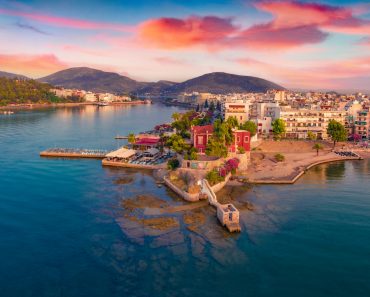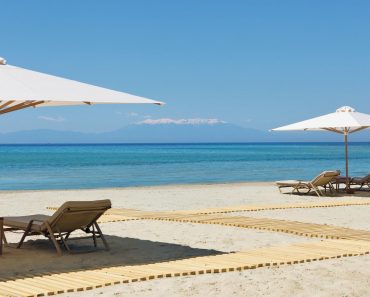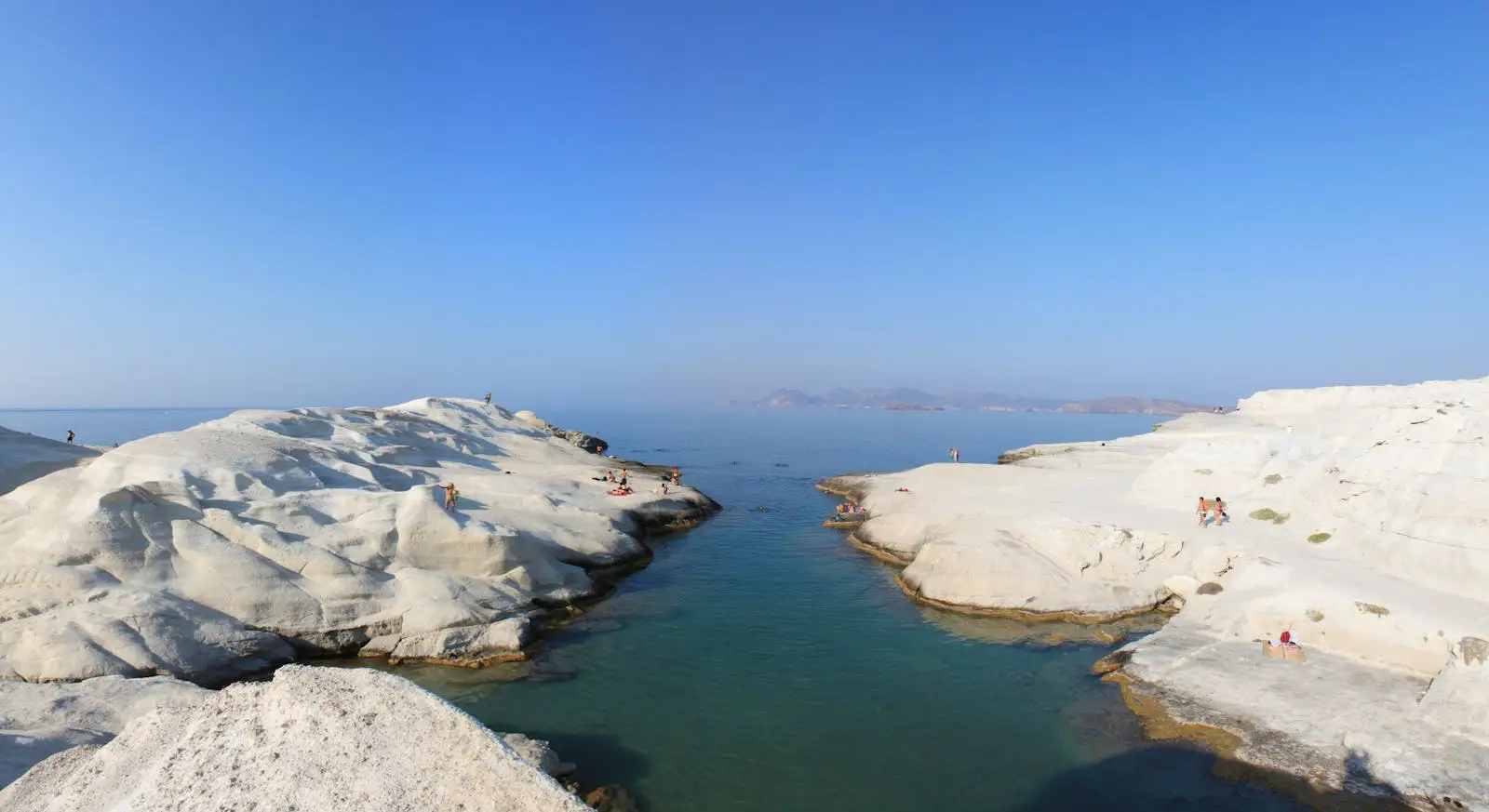Published on
September 7, 2025
Europe’s tourism industry is undergoing a major transformation as France joins Italy, Greece, Spain, Croatia, and the Netherlands in a unified effort to crack down on overtourism. The issue of overcrowding has become increasingly urgent, with the influx of tourists overwhelming local infrastructure, damaging cultural landmarks, and creating social tension between residents and visitors. In response to these challenges, these countries are rolling out groundbreaking rules, guidelines, and regulations aimed at mitigating the effects of mass tourism while ensuring that these iconic destinations remain accessible and sustainable for future generations.
From limiting the number of visitors to implementing higher tourist taxes, these new measures are designed to strike a balance between preserving the unique charm of each location and managing the strain on resources and communities. This collective action is not just about protecting the environment but also about improving the quality of life for residents, whose lives are often disrupted by the rapid growth of tourism.
France, long the world’s most visited country, has now taken significant steps alongside its European neighbors. The new rules and guidelines introduced across these countries include everything from strict limits on short-term rentals to new tourist entry fees and visitor caps for popular attractions. The aim is clear: to prevent tourist hotspots from becoming overwhelmed by unsustainable numbers and to encourage more responsible and respectful travel. As these groundbreaking measures begin to take effect, they will dramatically shape how tourists experience Europe’s cultural and natural wonders.
For anyone planning to visit these destinations, understanding the new regulations and how they may impact your trip is crucial. With guidelines around everything from the number of tourists allowed to visit historical sites, to restrictions on the types of accommodations available, it’s essential to be well-informed before you embark on your journey. Whether you’re dreaming of a visit to the Eiffel Tower, the canals of Venice, or the ancient ruins of Greece, these changes will undoubtedly influence your travel plans, and being prepared will ensure a smoother, more enjoyable experience.
In this article, we’ll walk you through everything you need to know about the recent crackdowns on overtourism and what these groundbreaking rules and guidelines mean for your upcoming trip across Europe. From increased tourist taxes to the growing regulation of short-term rentals, here’s your comprehensive guide to navigating the new era of European tourism.
France: Sustainable Tourism and Managing Visitor Flows
France, the world’s most visited country, is also grappling with the pressures of mass tourism. While France has long been known for its iconic landmarks, such as the Eiffel Tower, Louvre Museum, and Mont-Saint-Michel, the sheer volume of visitors has caused significant challenges for local communities and the environment. The French government has introduced a range of measures to address these issues, focusing on sustainable tourism, better visitor management, and the protection of cultural heritage.
Paris: Housing, Transport, and Behavioral Restrictions
Paris, as one of the world’s most visited cities, is taking proactive measures to address overtourism. The city is tackling the housing crisis by regulating short-term rentals, with laws that cap the number of nights properties can be rented out. The “Loi le Meur” law, introduced in 2025, reduces the maximum rental period from 120 nights to 90 nights in certain areas. This move is aimed at preventing the displacement of residents and ensuring that housing remains affordable for locals.
In terms of transport, Paris is implementing stricter rules for vehicles in the city. Starting in January 2025, older, more polluting vehicles will be banned from the city and its inner suburbs for most of the week. Public transport is also set for changes, with potential price hikes and the simplification of travel zones. These measures aim to reduce congestion, improve air quality, and encourage more sustainable travel options.
Paris has also introduced fines for disruptive tourist behaviors. Alcohol consumption is banned in many public areas, with fines up to €135 for violations. Additionally, workers at major attractions like the Louvre Museum have gone on strike in protest against overcrowding and understaffing, signaling the strain that tourism is placing on the city’s infrastructure.
French Riviera: Managing Cruise Ship Tourism
In the French Riviera, popular destinations like Cannes and Nice are introducing new restrictions on cruise tourism. From 2026, Cannes will prohibit cruise ships with over 1,000 passengers from docking directly at the port. This decision follows similar measures in other European cities like Venice and Amsterdam, which have restricted cruise ship access due to environmental concerns and overcrowding. Nice is also introducing restrictions, prohibiting cruise ships larger than 900 passengers from docking at the city’s port.
National Measures for Sustainable Tourism
At a national level, France is working to spread tourism beyond its most famous destinations. The “Destination France” plan, launched in 2021, aims to promote greener, more responsible travel by encouraging visitors to explore lesser-known regions and travel by rail instead of short-haul flights. The plan also includes funding for infrastructure projects in mid-sized cities, which are often overlooked in favor of major tourist hubs like Paris.
France’s commitment to sustainable tourism is also reflected in the introduction of a higher tourist tax in certain areas. These funds are intended to support local communities and mitigate the negative effects of mass tourism on the environment and local resources.
| Measure | Details | Effective Date |
|---|---|---|
| Short-term Rental Regulations (Paris) | Capping rental days from 120 to 90 per year in some areas like Montmartre | 2025 |
| Cruise Ship Restrictions (French Riviera) | Larger cruise ships (over 1,000 passengers) banned from docking at Cannes | January 1, 2026 |
| Tourist Tax Increase (French Riviera) | Higher tourist tax rates for accommodation (scaled by type of lodging) | 2025 |
| Alcohol Restrictions (Paris) | Alcohol banned in many public areas; fines of €135 for violations | 2025 |
| Eiffel Tower and Louvre Crowds (Paris) | Workers at major attractions strike over overcrowding; calls for better visitor management | 2025 |
| Tourist Quotas (Mont-Saint-Michel and Etretat) | Limited number of visitors allowed daily to protect heritage and environment | 2025 |
Italy: Venice, Florence, and Rome Tackle Overtourism
Italy is another country taking drastic steps to manage overtourism, particularly in cities like Venice, Florence, and Rome, which are facing unprecedented visitor numbers. The Italian government and local authorities are focusing on measures to protect the country’s cultural heritage while managing the social and environmental impacts of mass tourism.
Venice: Expanding Visitor Fees and Cruise Ship Restrictions
Venice remains one of the most iconic examples of a city struggling with overtourism. The city has expanded its visitor fee system, which was introduced in 2024, to apply to more days during the peak season. In 2025, the fee will range from €5 to €10 depending on when tickets are booked. The city has also continued its ban on large cruise ships entering the Venetian Lagoon, a measure implemented in 2021 in response to environmental concerns and pressure from UNESCO.
In addition to these measures, Venice is imposing strict penalties for bad behavior, such as swimming in canals or sitting on monuments. The city has increased fines for these offenses, with penalties ranging from €100 to €350. These crackdowns aim to preserve the integrity of the city’s historic sites and improve the quality of life for residents who have long struggled with the negative effects of mass tourism.
Florence: Combatting Mass Tourism’s Impact on Residents
Florence, known for its Renaissance art and architecture, has implemented a 10-point plan to combat the effects of overtourism. The city has banned new short-term rental properties in the historic center and is cracking down on key boxes used for automated check-ins by tourists. Additionally, Florence has restricted the use of loudspeakers by tour guides to reduce noise pollution in the city center. Vehicle restrictions are also in place, with bans on atypical vehicles like golf carts and rickshaws to reduce congestion in popular tourist areas.
Rome: Managing Crowds During the Catholic Jubilee
Rome, expecting millions of additional visitors for the 2025 Catholic Jubilee, is preparing to control crowds at its most popular sites. The city is considering a timed, ticketed entry system for the Trevi Fountain to manage overcrowding. Rome has also increased fines for disruptive behaviors, such as damaging monuments or bathing in fountains, to ensure that visitors respect the city’s cultural heritage.
| Measure | Details | Effective Date |
|---|---|---|
| Visitor Fees (Venice) | Expanded day-trip fee (€5 to €10) for visitors, applicable on more days during the peak season (April to July) | 2025 |
| Cruise Ship Ban (Venice) | Continued ban on large cruise ships entering the Venetian Lagoon | Ongoing, since 2021 |
| Fines for Disruptive Behavior (Venice) | Penalties for offenses like swimming in canals (€350), sitting on monuments (€100–€200) | 2025 |
| Tour Group Restrictions (Venice) | Ban on tour groups larger than 25 people and prohibition on loudspeakers | 2025 |
| Short-term Rental Regulations (Florence) | Ban on new short-term rental properties in the historic center; crackdown on key boxes used for automated check-ins | 2025 |
| Vehicle and Tour Restrictions (Florence) | Restrictions on atypical vehicles (e.g., golf carts, rickshaws) to reduce congestion | 2025 |
| Timed Entry (Rome – Trevi Fountain) | Potential implementation of timed, ticketed entry for visitors to manage overcrowding | 2025 |
| General Behavior Fines (Rome) | Increased fines for damaging monuments, bathing in fountains, and other disruptive behaviors | 2025 |
| Visitor Limits (Pompeii) | Daily visitor cap of 20,000 to protect the ancient ruins, with personalized tickets and timed entries | 2025 |
| Tourist Infrastructure Changes (Rome) | Additional restrictions due to the 2025 Catholic Jubilee to manage crowds at key sites (e.g., Vatican, Trevi Fountain) | 2025 |
Greece: Controlling Crowds and Protecting Heritage
Greece, a top tourist destination, is facing significant challenges in managing tourism, particularly in its most iconic locations. With record-breaking visitor numbers and the strain of cruise ships flooding its islands, the Greek government has introduced several measures to manage the flow of tourists and mitigate the environmental impact of mass tourism.
Island Cruise Limits and Fees
Santorini, one of Greece’s most popular islands, has been overwhelmed by mass tourism, particularly from cruise ships. To protect the island’s infrastructure and ensure a more sustainable flow of tourists, Santorini is enforcing a daily cap on the number of cruise passengers. Starting in 2025, the island will limit the number of cruise passengers to 8,000 per day. This measure aims to reduce congestion on the narrow streets and preserve the island’s delicate caldera, a major tourist attraction.
In addition to the passenger cap, a €20 fee is being levied on cruise passengers visiting high-traffic destinations like Santorini and Mykonos. This fee will be in place during the peak summer months (June to September) to manage the increased visitor numbers. The fee is designed not only to manage congestion but also to generate revenue that can be reinvested into infrastructure and environmental preservation.
Mykonos and Athens: Further Restrictions and Regulations
Similar measures have been introduced in Mykonos, another major cruise destination. Along with Santorini, Mykonos now charges a €20 peak-season fee for cruise passengers. Additionally, the Greek government has implemented a tendering system that limits the number of cruise ships that can dock at its islands. This system ensures that passenger arrivals are better regulated, preventing the overwhelming of local infrastructure.
In Athens, the government is also focusing on managing tourism at its most famous landmark, the Acropolis. To prevent overcrowding, a daily visitor cap of 20,000 has been enforced, with pre-booked timed entry slots introduced to regulate visitor flow. These measures aim to protect the site from the wear and tear caused by large groups of tourists, ensuring that the Acropolis remains accessible and well-preserved for future generations.
National Efforts: Sustainable and Responsible Tourism
At a national level, Greece is shifting its focus towards more sustainable and responsible tourism. The introduction of a higher tourist tax in 2025 is designed to fund local infrastructure projects and support the sustainability of the tourism sector. The government has also implemented a “climate crisis resilience fee,” acknowledging the environmental pressures tourism places on the country’s natural resources.
Greece’s long-term strategy aims to encourage more qualitative, eco-friendly, and responsible tourism. This includes promoting lesser-known destinations and off-peak travel to reduce pressure on popular sites. However, despite these measures, the sheer volume of tourists remains a challenge, and some industry experts argue that additional actions are needed to address the growing inequality within the country, where locals are struggling to afford vacations due to rising costs driven by tourism.
| Measure | Details | Effective Date |
|---|---|---|
| Cruise Ship Passenger Cap (Santorini) | Daily limit of 8,000 cruise passengers to reduce overcrowding | 2025 |
| Cruise Passenger Fee (Santorini/Mykonos) | €20 fee for cruise passengers during peak season (June–Sept) | July 1, 2025 |
| Acropolis Daily Visitor Cap | 20,000 visitors per day; timed entry slots introduced | 2025 |
| Short-term Rental Regulations | Temporary ban on new short-term rental licenses in certain areas of Athens (Kolonaki, Koukaki) | 2025 |
| Tourist Tax | Increased tax on accommodation to support local infrastructure and sustainability | 2025 |
| “Climate Crisis Resilience Fee” | New fee to address environmental impacts from tourism | 2025 |
Spain: Tackling Overtourism with Drastic Measures
Spain has also been hit hard by overtourism, particularly in cities like Barcelona, as well as in its island regions of the Balearics and Canaries. The Spanish government is responding with a range of new measures aimed at addressing the negative effects of mass tourism, from housing shortages to environmental degradation.
Barcelona: A Bold Plan to Regulate Tourism
Barcelona has been one of the most vocal cities in Spain when it comes to overtourism. The city’s government has taken bold steps to regulate tourism and protect the quality of life for its residents. One of the most significant measures is the total ban on short-term rentals, which will be implemented by 2028. This ban affects over 10,000 rental properties and aims to return them to the residential market, helping to alleviate the housing crisis in the city. The move is part of a broader strategy to curb rising housing costs, which have been exacerbated by the influx of tourists seeking short-term accommodations.
To further reduce the impact of tourism, Barcelona has also implemented restrictions on cruise ships. Two of the city’s cruise terminals will close by the end of 2025, leaving only five in operation. This decision aims to reduce the number of tourists arriving via cruise ships, which have been a significant contributor to congestion in the city center. Additionally, the city has imposed fines for public behaviors such as walking in swimwear outside of designated beach areas, which has become a growing nuisance for residents.
Balearic Islands: Curbing Party Tourism and Increasing Tourist Taxes
The Balearic Islands, including Mallorca and Ibiza, are taking similar steps to tackle the environmental and social impacts of mass tourism. The regional government has introduced stricter alcohol regulations, including prohibiting alcohol sales in shops between 9:30 p.m. and 8:00 a.m. in popular resorts. Party boats and street drinking have also been banned in certain areas, with fines ranging from €500 to €3,000 for violations. These measures aim to reduce the disruptive behavior associated with party tourism, which has become a significant issue in the islands.
Tourist taxes have also increased in the Balearics, with the highest rates targeting guests at luxury hotels during peak season. In addition to these measures, the region is also grappling with water shortages, which have prompted the government to restrict non-essential water use, such as filling swimming pools, during periods of extreme drought. These efforts are part of a broader push to make tourism in the Balearics more sustainable and reduce the strain on local resources.
Canary Islands: Addressing the Impact of Mass Tourism
The Canary Islands, known for their volcanic landscapes and year-round warm weather, have also been struggling with overtourism. Large-scale anti-tourism protests have taken place in 2025, as locals express frustration over rising housing costs and the environmental impact of mass tourism. In response, the regional government has introduced measures to regulate short-term rentals and curb the growth of holiday developments. Additionally, a potential tourist tax is being considered as part of efforts to shift towards a more sustainable tourism model.
| Measure | Details | Effective Date |
|---|---|---|
| Short-term Rental Ban (Barcelona) | Full ban on short-term rentals by 2028, affecting 10,000 apartments | November 2028 |
| Cruise Ship Terminal Closures (Barcelona) | Two cruise terminals to close, limiting the number of ships docking | End of 2025 |
| Cruise Ship Limitations (Balearic Islands) | Restriction on large cruise ships; tourist tax increases | 2025 |
| Alcohol Sale Restrictions (Balearic Islands) | No alcohol sales between 9:30 p.m. and 8:00 a.m. in popular resort areas | 2025 |
| Tourist Tax (Balearic Islands) | Higher rates for luxury hotels and peak season stays | 2025 |
| Street Drinking Bans (Balearic Islands) | Ban on street drinking and party boats | 2025 |
The Netherlands: Regulating Tourism for Sustainability
The Netherlands, particularly its capital Amsterdam, has become a leader in Europe’s fight against overtourism. Amsterdam is one of the most visited cities in Europe, but with rising visitor numbers, the city is facing increasing pressure to maintain its livability and environmental sustainability. The Dutch government and the city of Amsterdam have taken proactive steps to regulate tourism, with a focus on reducing the negative impacts of mass tourism while still promoting a vibrant economy.
Accommodation Regulations and Restrictions
Amsterdam has introduced some of the most stringent regulations regarding tourism accommodation. The city council has implemented a ban on the construction of new hotels, effective since April 2024. This measure aims to cap the total number of tourists visiting the city by limiting the growth of hotel infrastructure. The ban allows for new hotels only if an existing one closes down, and the new development must be more sustainable than its predecessor. Additionally, the city has imposed strict rules on short-term rentals, particularly those listed on platforms like Airbnb. These rentals are now limited to 30 nights per year for primary homes, and the number of guests per property is capped.
This policy is intended to combat the strain on housing availability and affordability, which has been exacerbated by the growth of short-term rentals. By limiting these rentals, Amsterdam aims to keep more properties available for residents and reduce the pressure on the housing market.
Curbing Disruptive Tourism and Pollution
Amsterdam is also actively addressing the issue of disruptive tourism, particularly targeting tourists who engage in rowdy behaviors. The “Stay Away” campaign, launched in 2023, targets specific demographics known for engaging in excessive drinking, public urination, and other disruptive actions. Amsterdam’s Red Light District, which has long been a hotspot for party tourism, has seen increased regulation, including a ban on smoking cannabis on the streets and restrictions on organized pub crawls and guided tours.
Additionally, the city is taking action to reduce pollution caused by tourist transport. Amsterdam is gradually phasing out ocean cruise ships, aiming for a complete ban in the city center by 2035. As a first step, the number of cruise ships allowed to dock at the Passenger Terminal Amsterdam (PTA) will be halved to just 100 annually starting in 2026. The city is also reducing the number of river cruises and has imposed restrictions on buses over 7.5 tons entering the city center. These actions are aimed at reducing the environmental impact of tourism, particularly air pollution and traffic congestion.
Sustainable Tourism and Community Engagement
Beyond restrictions, Amsterdam is promoting sustainable tourism through various initiatives. The city is encouraging tourists to explore neighborhoods outside of the central tourist areas, redistributing tourism to reduce overcrowding. There is also a focus on attracting visitors who stay longer, engage more deeply with local culture, and contribute positively to the local economy.
Community engagement is a key component of Amsterdam’s tourism strategy. The city regularly involves residents in the decision-making process, ensuring that policies address their concerns and improve their quality of life. While some critics warn that these measures might harm the local economy, Amsterdam’s leadership argues that prioritizing sustainability and livability will benefit the city in the long run.
| Measure | Details | Effective Date |
|---|---|---|
| Hotel Construction Ban (Amsterdam) | No new hotels allowed, except for replacing older ones with more sustainable options | April 2024 |
| Short-term Rental Restrictions (Amsterdam) | Rentals limited to 30 nights per year for primary residences | 2024 |
| “Stay Away” Campaign (Amsterdam) | Targeting disruptive tourists (e.g., rowdy behavior, public drunkenness) | 2023 |
| Cruise Ship Reduction (Amsterdam) | Halving the number of cruise ships allowed to dock at the Passenger Terminal Amsterdam (PTA) | 2026 |
| Pollution and Transport Measures (Amsterdam) | Ban on heavy vehicles in the city center, emission-free zones for boats | 2025–2026 |
| Tourist Tax Increase (Amsterdam) | Increased tourist tax (12.5% of accommodation costs) | 2024 |
Croatia: Managing Growth in Popular Destinations
Croatia, particularly its coastal cities like Dubrovnik and Split, has experienced a surge in tourism in recent years. The picturesque landscapes, historical sites, and beautiful coastline have made Croatia one of Europe’s top destinations. However, the rapid growth of tourism, especially in places like Dubrovnik, has led to overcrowding and rising tensions between locals and visitors. The Croatian government is addressing these challenges through a series of crackdowns aimed at curbing the impact of mass tourism.
Dubrovnik: “Respect the City” Campaign and Cruise Ship Limitations
Dubrovnik, one of Europe’s most visited cities relative to its population size, has become a focal point in Croatia’s fight against overtourism. The city has refined its “Respect the City” initiative, which aims to balance tourism with the needs of local residents. Dubrovnik has implemented a cap on the number of cruise ships allowed to dock per day, with a maximum of two cruise ships permitted in the city at any given time. This move is designed to reduce congestion in the historic Old Town, which is already heavily crowded during peak seasons.
To further manage the flow of tourists, Dubrovnik has introduced a booking system for coach party arrivals at key entry points like Pile Gate. The system aims to prevent bottlenecks and ensure a more orderly flow of visitors. Dubrovnik is also auditing short-term rental properties within the Old Town to prevent the displacement of residents, a common issue in overtourism hotspots. The city is even purchasing some properties back to provide long-term housing for locals.
In addition to these measures, Dubrovnik is enforcing stricter fines for disruptive behavior, including public urination, public drunkenness, and climbing monuments. These actions are part of a broader effort to preserve the city’s cultural heritage while ensuring that tourism benefits both visitors and locals.
Split: Addressing Party Tourism and Noise Pollution
Split, another major Croatian city, has been cracking down on its reputation as a party destination. The city has introduced measures to curb excessive party tourism, particularly around its popular nightlife areas. New rules allow police to issue fines of between £130 and £260 for behaviors such as public drinking, vomiting, or sleeping in public places. These measures are designed to reduce the noise and disruption caused by rowdy party-goers.
Split’s efforts reflect the broader shift in Croatia toward a more balanced and sustainable form of tourism. The city’s mayor has expressed a commitment to encouraging a tourism model that respects local culture and promotes a more sustainable approach to travel. Future plans may include regulations on low-cost airlines, which are often responsible for bringing in large groups of rowdy tourists.
Hvar: Noise and Behavior Restrictions
The island of Hvar, known for its vibrant nightlife, is also tightening its regulations on tourism. Outdoor bars and clubs are required to keep noise levels below 85 decibels and stop playing music by midnight. These regulations are part of an effort to reduce the environmental impact of tourism, as well as to preserve the quality of life for local residents. In addition, Hvar continues to enforce fines for excessive alcohol consumption in public areas and for visitors walking around in swimsuits outside of designated beach zones.
| Measure | Details | Effective Date |
|---|---|---|
| Cruise Ship Limit (Dubrovnik) | Max of two cruise ships allowed to dock per day | Ongoing, with restrictions refined in 2025 |
| Affordable Housing (Dubrovnik) | Auditing and purchasing short-term rental properties to convert them into long-term housing | Ongoing, beginning 2025 |
| Fines for Disruptive Behavior (Dubrovnik) | Increased penalties for public urination, public drunkenness, and climbing monuments | 2025 |
| Noise Regulations (Hvar) | Noise levels in bars/clubs capped at 85 decibels; music must stop by midnight | Early 2025 |
| Fines for Alcohol Abuse (Hvar) | Fines up to €600 for excessive alcohol consumption in public | 2025 |
| Party Tourism Restrictions (Split) | Fines for public drinking, vomiting, and sleeping in public spaces | 2025 |
The Impact on Airbnb and Short-Term Rentals in Europe
Recent crackdowns on short-term rentals like Airbnb have significantly affected the market, especially in popular European cities. Governments have introduced stricter regulations to tackle overtourism, housing shortages, and the negative effects of unregulated rentals. Here’s a look at how these changes are reshaping the travel industry.
Reduced Listings: A Shrinking Market: New regulations across Europe have led to a substantial reduction in available short-term rental listings. In Spain, over 1 million tourist beds could be removed from the market by 2025 due to registration and compliance requirements. Similarly, Amsterdam’s ban on new hotels and restrictions on short-term rentals have drastically reduced available properties, leaving travelers with fewer options.
Intensified Competition for Hosts: With fewer legal rental options, remaining Airbnb hosts are facing heightened competition. Many smaller hosts are being pushed out due to the complexity and cost of meeting new regulations. This is creating a more competitive environment where only well-established hosts can thrive. At the same time, unregistered or illegal rentals are rising, leading to a less regulated and potentially riskier market for both hosts and guests.
Shifting Guest Behavior: Hotels on the Rise: As the short-term rental market tightens, many travelers are shifting to hotels. The complexity of navigating regulations and the uncertainty of booking through Airbnb has led guests to prefer the reliability and simplicity of hotels, especially in city centers. This shift is driving hotel occupancy rates and prices up in places like Barcelona and Amsterdam.
| Sector | Positive Effects | Negative Effects |
|---|---|---|
| Airbnb | Potential for guest dispersal to less crowded areas | Reduced listings, increased legal and operational challenges |
| Hotels | Increased occupancy and higher prices in city centers | Strained capacity, higher operational costs, and potential for reduced guest satisfaction |
| Airlines | Potential for shifts to alternative, less-crowded destinations | Reduced flight supply from tax burdens, especially for low-cost carriers |
Conclusion
As Europe tackles the pressing issue of overtourism, countries like France, Italy, Greece, Spain, Croatia, and the Netherlands are stepping up with groundbreaking rules and guidelines that aim to balance the benefits of tourism with the need for sustainability. These crackdowns are a vital part of preserving the cultural, environmental, and social fabric of some of the world’s most iconic destinations. While these changes may require some adjustments for travelers, they ultimately promise a more respectful and sustainable way to experience Europe’s rich history, stunning landscapes, and vibrant communities.
For those planning to visit these destinations, staying informed about the new regulations and understanding their impact will be key to a smooth and enjoyable experience. With measures ranging from entry fees and visitor caps to restrictions on short-term rentals and tourist behaviors, these efforts reflect a commitment to ensuring that Europe remains a thriving, accessible, and sustainable travel destination for years to come. As you plan your next trip, embrace these changes as part of a new era of travel—one that prioritizes quality over quantity and promotes responsible tourism for both visitors and locals alike.







